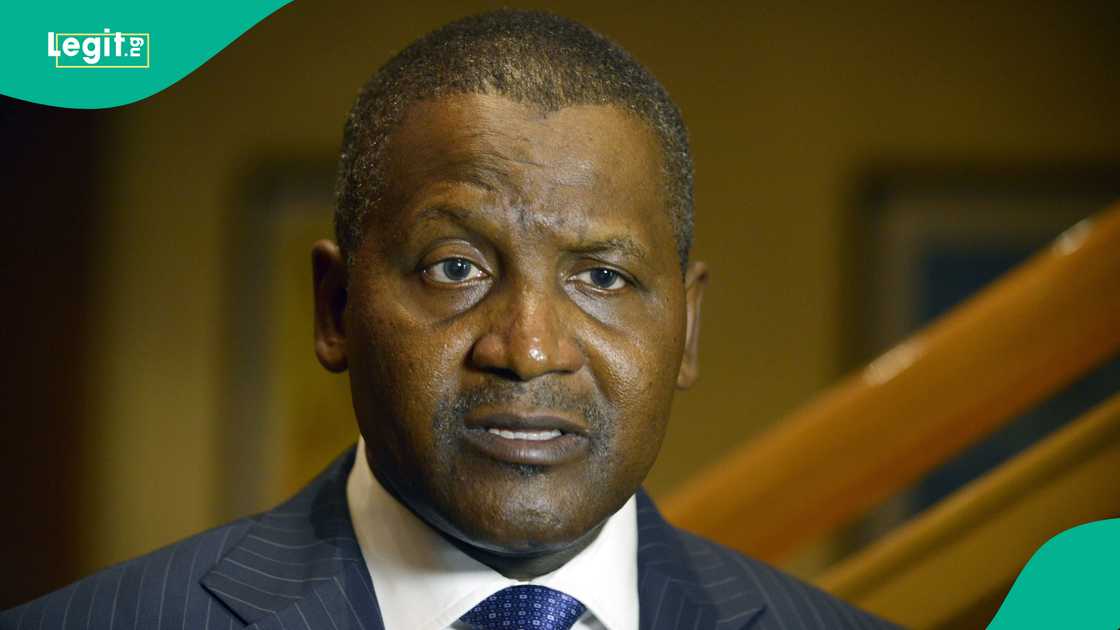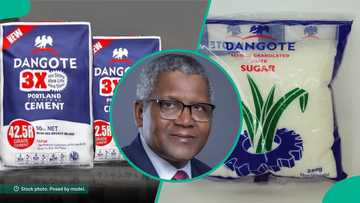Dangote Refinery’s New CEO, Unveils Expansion Plans to Tackle Output Setbacks and Global Reach
- The newly appointed Dangote Refinery CEO has resumed his job at the mega facility, laying out bold plans
- David Bird emerged as Africa’s biggest refinery boss amid plans to upgrade and embark on a nationwide fuel distribution
- Meanwhile, the Chairman of the Dangote conglomerate, Aliko Dangote, remains as head of the empire, despite resigning from his two firms
Legit.ng’s Pascal Oparada has reported on tech, energy, stocks, investment and the economy for over a decade.
The Dangote Group has appointed David Bird, former head of Oman’s Duqm Refinery, as the first CEO of its fuels and petrochemicals division, as the company enters a critical phase of growth and stabilisation.
Effective July 2025, Bird now oversees operations at the 650,000 barrels-per-day (b/d) refinery in Lagos—the world’s largest single-train refinery.

Source: Instagram
Focus on expansion and Africa-wide growth
His appointment follows persistent unit outages and early-stage technical setbacks that have limited output despite the plant’s official commissioning in early 2024.
In a LinkedIn statement, Bird said his immediate priority is to optimise output and improve efficiency at the refinery, while expanding the company’s presence across Africa.
The Dangote Group aims to build storage infrastructure in Namibia and other countries to support broader continental distribution.
Plans are also underway to increase refinery capacity to 700,000 b/d, add port infrastructure, and roll out a 4,000-vehicle CNG-powered truck fleet for downstream distribution by August.
Navigating operational setbacks and supply constraints
Although the refinery ramped up surprisingly fast in 2024, its core gasoline-producing unit—the residue fluid catalytic cracker (RFCC)—has suffered repeated outages in 2025.
As a result, Dangote has relied more heavily on lower-yield reformers, reducing overall fuel output.
According to a Dangote executive who spoke to Platts, the RFCC was running at 85% capacity as of early July.
The executive denied rumours of an upcoming full turnaround scheduled for December.
Meanwhile, Aliko Dangote remains chairman of the refining business and CEO of the wider group, which also spans cement, sugar, and fertilisers.
He recently reiterated his plan to list the refining business on both the Lagos and London stock exchanges, aiming to attract global investment.
Strategic shift to feedstock flexibility
The refinery, initially designed to process Nigerian crude, is now moving towards feedstock flexibility, a strategy that Bird championed during his tenure at Oman’s OQ8. The change comes amid limited availability of Nigerian crude and the company’s desire to remain competitive in international markets.
Exports in July 2025 reached 220,000 b/d, according to S&P Global, with Dangote as Nigeria’s sole active refiner during outages at NNPC facilities.

Source: Getty Images
Jet fuel made up 45% of shipments, followed by gasoil (24%) and residual fuel, which would typically undergo further refining in the RFCC.
Dangote pushes back against market resistance
Despite its growing market share in Nigeria, Dangote faces resistance from some marketers who continue to favour cheaper imported fuel.
In recent months, Aliko Dangote has criticised foreign "rent-seekers" and low-grade fuel imports, calling for stronger domestic trade protections.
However, Bird’s appointment and strategic focus signal a shift from internal firefighting to regional growth, operational resilience, and long-term global relevance for Africa’s refining giant.
Dangote Refinery speaks on shutdown rumour
Legit.ng earlier reported that management of the Dangote Refinery has firmly dismissed widespread rumours of an imminent shutdown at the company’s 650,000 barrels-per-day (bpd) complex in Lagos.
Reports suggesting a planned December turnaround for its key petrol-producing unit have been labelled inaccurate and illogical.
Speaking on behalf of the company, Edwin Devakumar, Executive Director at Dangote Industries, clarified that there are no plans to shut down the Residual Fluid Catalytic Cracker (RFCC) unit.
Source: Legit.ng





